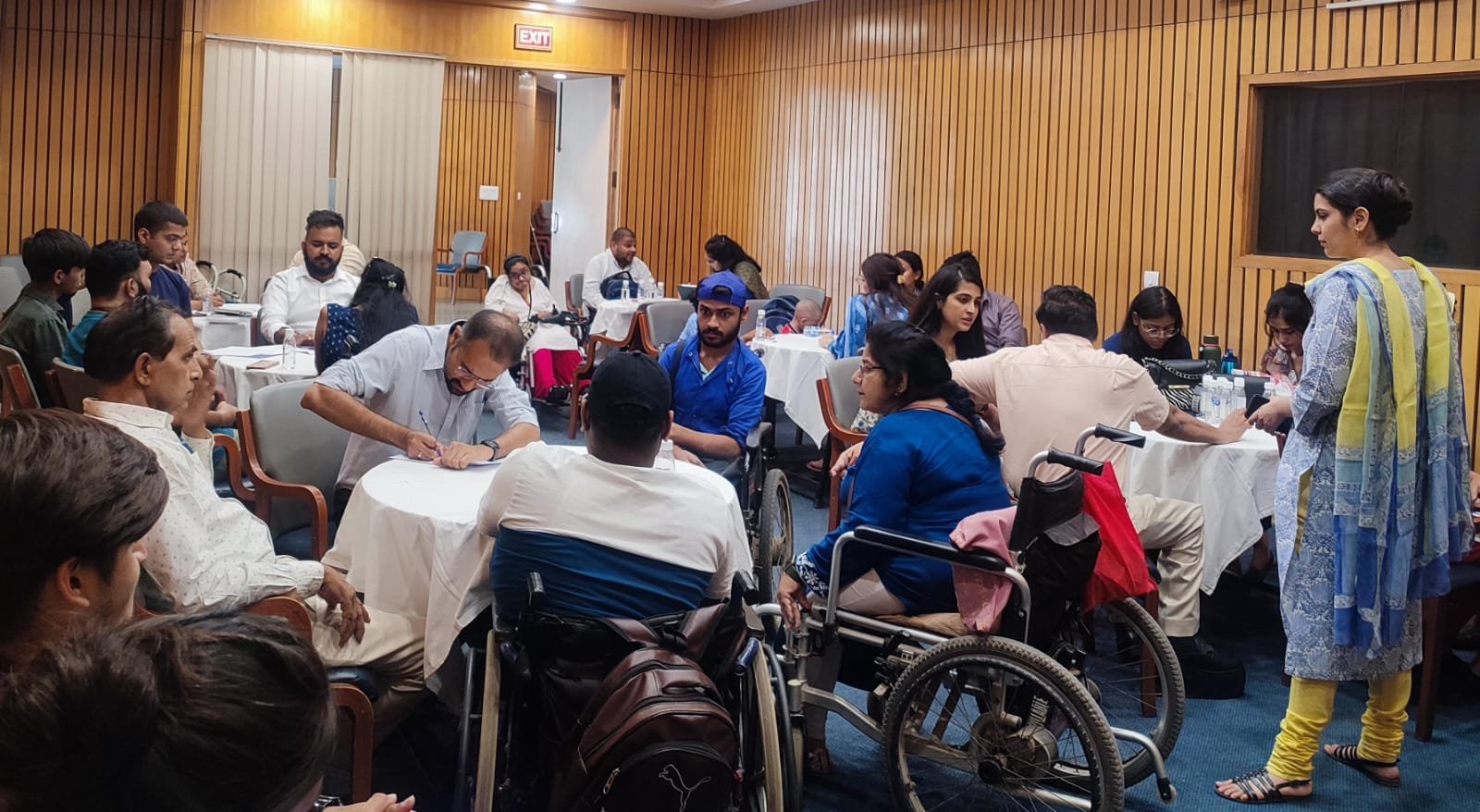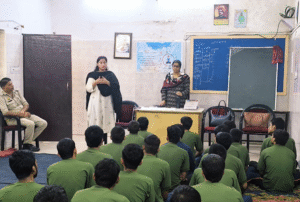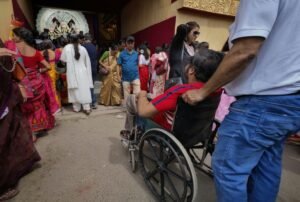
iProbono India has started working on disability justice in India, tackling key issues and promoting inclusivity in policing.
Over 26.8 million people in India live with disabilities, representing a significant portion of our population. Among them, 20% struggle with movement, 19% with vision, and another 19% with hearing. Additionally, 8% face the challenge of multiple disabilities. The 2011 Census reveals a poignant reality: the highest prevalence of disabilities is among our young, with 17% aged 10-19 years and 16% aged 20-29 years.
These statistics are not just numbers—they represent individuals whose potential and aspirations are often hindered by societal barriers.
Persons with disabilities are entitled to legal protections that ensure equal opportunities and protection from discrimination. However, despite these provisions, their rights are often undermined due to an ableist approach to many aspects of social and economic life in India.
To address this, India introduced the Rights of Persons with Disabilities (RPwD) Act 2016, replacing the pre-existing Disabilities (Equal Opportunities, Protection of Rights, and Full Participation) Act of 1995. The RPwD Act aims to ensure that all persons with disabilities lead lives of dignity and have equal opportunities. This Act resulted from years of protest and advocacy aimed at abolishing discrimination against individuals with disabilities and promoting inclusion in society.
The RPwD Act marked a significant step towards disability justice in India. It embraced global principles like inclusivity, accessibility, and full participation, as outlined by the United Nations Convention on the Rights of Persons with Disabilities (UNCRPD), 2007. This shift to the social model of disability recognised that societal barriers, not just impairments, are the root cause of disability.
Understanding the challenges faced by persons with disabilities is not just about addressing a massive miscarriage of justice—it’s about recognising humanity and the potential in every individual. By fostering inclusivity and dismantling barriers, we can create a society where everyone has the opportunity to contribute and flourish. Disability justice is about ensuring fundamental human rights and dignity for all.
iProbono India’s Commitment to Disability Justice
At iProbono India, we aim to empower persons with disabilities by enhancing their access to justice and addressing key challenges within the current legislative framework. Our goal is to build an inclusive society where persons with disabilities can live with dignity and have access to equal opportunities. This commitment is part of our broader mission to promote social equity, end discrimination, and create a just society.
The cornerstone of our work is providing comprehensive support to persons with disabilities. This includes:
– Ensuring quality pro bono legal representation in cases related to harassment and discrimination
– Advocating for better access to public spaces and accommodations for people with disabilities
– Assisting with securing legal rights and benefits like certification, accessing education, employment, and healthcare, and accessible transport services
– Engaging in strategic litigation on policy issues, while also conducting thorough research and advocacy
One of our key initiatives is “Inclusive Policing for Persons with Disabilities.” This campaign addresses crucial issues at the intersection of disability justice and policing. Our national consultation, scheduled for September 2024 will bring together experts and stakeholders to discuss ableist practices within policing, generate evidence for advocacy, and ensure police interactions with persons with disabilities are inclusive, accessible, and dignified for all. The consultation will feature case studies and panel discussions with experts from criminal justice and disability justice, as well as other stakeholders including affected individuals, working to collectively envision more inclusive policing practices.
iProbono India’s Ongoing Initiatives
Our ongoing initiatives to advance disability justice work to address gaps in implementation, enhancing access to justice, and providing comprehensive support to persons with disabilities. Here’s how we are making a difference:
Facilitating Access to Justice
We focus on breaking down barriers within the justice system, including interactions with police, prisons, and legal aid services, to ensure fair treatment for persons with disabilities.
Monitoring State-Wise Implementation of the RPwD Act
We actively monitor the implementation of the RPwD Act across different states. While the Act delegates key disability rights policy-making to state governments, its implementation has been inconsistent over the past eight years. Some states still haven’t notified rules or constituted essential bodies like the State Advisory Committee. We identify these gaps and advocate for better execution with stakeholders.
Strengthening Grievance Redressal
A key aspect of the RPwD Act is ensuring that persons with disabilities have multiple avenues for grievance redressal concerning disability rights. The Act allows commissioners at the central and state levels, and inter-departmental grievance redressal officers to address matters before resorting to court proceedings. We monitor the functioning of these bodies and engage in research and advocacy to strengthen their operations, as envisaged under the RPwD Act.
Strengthening the Functioning of Central & State Commissioners
Earlier this year, we hosted a panel discussion at the International Purple Fest 2024 in Goa on “Strengthening the Functioning of Chief & State Commissioners for Persons with Disabilities”. The panel was organised with distinguished disability rights activist and our Disability Justice advisor Dr Satendra Singh, founder and head of ‘Doctors with Disabilities: Agents of Change’, a nationwide network of health professionals with disabilities. The discussion included persons with disabilities, disability rights activists and representatives of state commissioners and expert lawyers, addressing the non-implementation of commissioners’ orders and exploring safeguards.
Legal Aid Camps
We provide legal advice for persons with disabilities from low-income backgrounds through legal aid camps where we identify cases needing litigation and advocacy support.
Engagement with Government Stakeholders
We have made submissions to the Supreme Court of India to address stereotypes against persons with disabilities in legal settings, and to the National Legal Services Authority (NALSA) with recommendations to improve their legal aid scheme for children with disabilities.
Way Forward
Stay connected for more about our work on disability justice, as we continue our initiatives in this crucial area. For more information or to get involved, please reach out to us at communications@i-probono.com. Join us in this journey towards a just and inclusive world for all.












